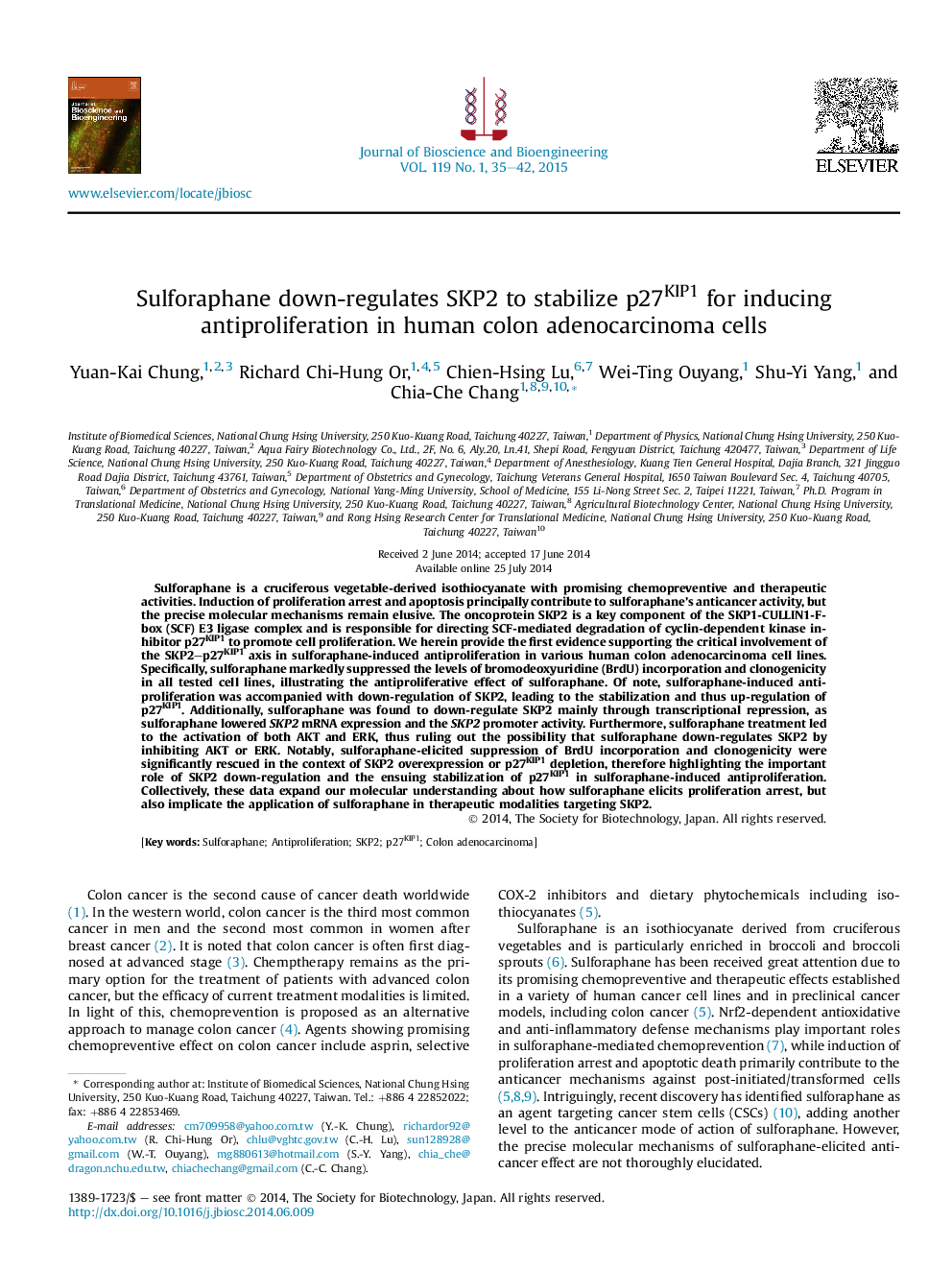| Article ID | Journal | Published Year | Pages | File Type |
|---|---|---|---|---|
| 20303 | Journal of Bioscience and Bioengineering | 2015 | 8 Pages |
Sulforaphane is a cruciferous vegetable-derived isothiocyanate with promising chemopreventive and therapeutic activities. Induction of proliferation arrest and apoptosis principally contribute to sulforaphane's anticancer activity, but the precise molecular mechanisms remain elusive. The oncoprotein SKP2 is a key component of the SKP1-CULLIN1-F-box (SCF) E3 ligase complex and is responsible for directing SCF-mediated degradation of cyclin-dependent kinase inhibitor p27KIP1 to promote cell proliferation. We herein provide the first evidence supporting the critical involvement of the SKP2–p27KIP1 axis in sulforaphane-induced antiproliferation in various human colon adenocarcinoma cell lines. Specifically, sulforaphane markedly suppressed the levels of bromodeoxyuridine (BrdU) incorporation and clonogenicity in all tested cell lines, illustrating the antiproliferative effect of sulforaphane. Of note, sulforaphane-induced antiproliferation was accompanied with down-regulation of SKP2, leading to the stabilization and thus up-regulation of p27KIP1. Additionally, sulforaphane was found to down-regulate SKP2 mainly through transcriptional repression, as sulforaphane lowered SKP2 mRNA expression and the SKP2 promoter activity. Furthermore, sulforaphane treatment led to the activation of both AKT and ERK, thus ruling out the possibility that sulforaphane down-regulates SKP2 by inhibiting AKT or ERK. Notably, sulforaphane-elicited suppression of BrdU incorporation and clonogenicity were significantly rescued in the context of SKP2 overexpression or p27KIP1 depletion, therefore highlighting the important role of SKP2 down-regulation and the ensuing stabilization of p27KIP1 in sulforaphane-induced antiproliferation. Collectively, these data expand our molecular understanding about how sulforaphane elicits proliferation arrest, but also implicate the application of sulforaphane in therapeutic modalities targeting SKP2.
